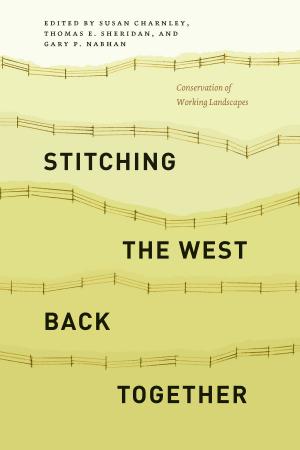Network Aesthetics
Nonfiction, Art & Architecture, General Art, Criticism, Fiction & Literature, Literary Theory & Criticism, Social & Cultural Studies, Social Science| Author: | Patrick Jagoda | ISBN: | 9780226346656 |
| Publisher: | University of Chicago Press | Publication: | March 22, 2016 |
| Imprint: | University of Chicago Press | Language: | English |
| Author: | Patrick Jagoda |
| ISBN: | 9780226346656 |
| Publisher: | University of Chicago Press |
| Publication: | March 22, 2016 |
| Imprint: | University of Chicago Press |
| Language: | English |
The term “network” is now applied to everything from the Internet to terrorist-cell systems. But the word’s ubiquity has also made it a cliché, a concept at once recognizable yet hard to explain. Network Aesthetics, in exploring how popular culture mediates our experience with interconnected life, reveals the network’s role as a way for people to construct and manage their world—and their view of themselves.
Each chapter considers how popular media and artistic forms make sense of decentralized network metaphors and infrastructures. Patrick Jagoda first examines narratives from the 1990s and 2000s, including the novel Underworld, the film Syriana, and the television series The Wire, all of which play with network forms to promote reflection on domestic crisis and imperial decline in contemporary America. Jagoda then looks at digital media that are interactive, nonlinear, and dependent on connected audiences to show how recent approaches, such as those in the videogame Journey, open up space for participatory and improvisational thought.
Contributing to fields as diverse as literary criticism, digital studies, media theory, and American studies, Network Aesthetics brilliantly demonstrates that, in today’s world, networks are something that can not only be known, but also felt, inhabited, and, crucially, transformed.
The term “network” is now applied to everything from the Internet to terrorist-cell systems. But the word’s ubiquity has also made it a cliché, a concept at once recognizable yet hard to explain. Network Aesthetics, in exploring how popular culture mediates our experience with interconnected life, reveals the network’s role as a way for people to construct and manage their world—and their view of themselves.
Each chapter considers how popular media and artistic forms make sense of decentralized network metaphors and infrastructures. Patrick Jagoda first examines narratives from the 1990s and 2000s, including the novel Underworld, the film Syriana, and the television series The Wire, all of which play with network forms to promote reflection on domestic crisis and imperial decline in contemporary America. Jagoda then looks at digital media that are interactive, nonlinear, and dependent on connected audiences to show how recent approaches, such as those in the videogame Journey, open up space for participatory and improvisational thought.
Contributing to fields as diverse as literary criticism, digital studies, media theory, and American studies, Network Aesthetics brilliantly demonstrates that, in today’s world, networks are something that can not only be known, but also felt, inhabited, and, crucially, transformed.















